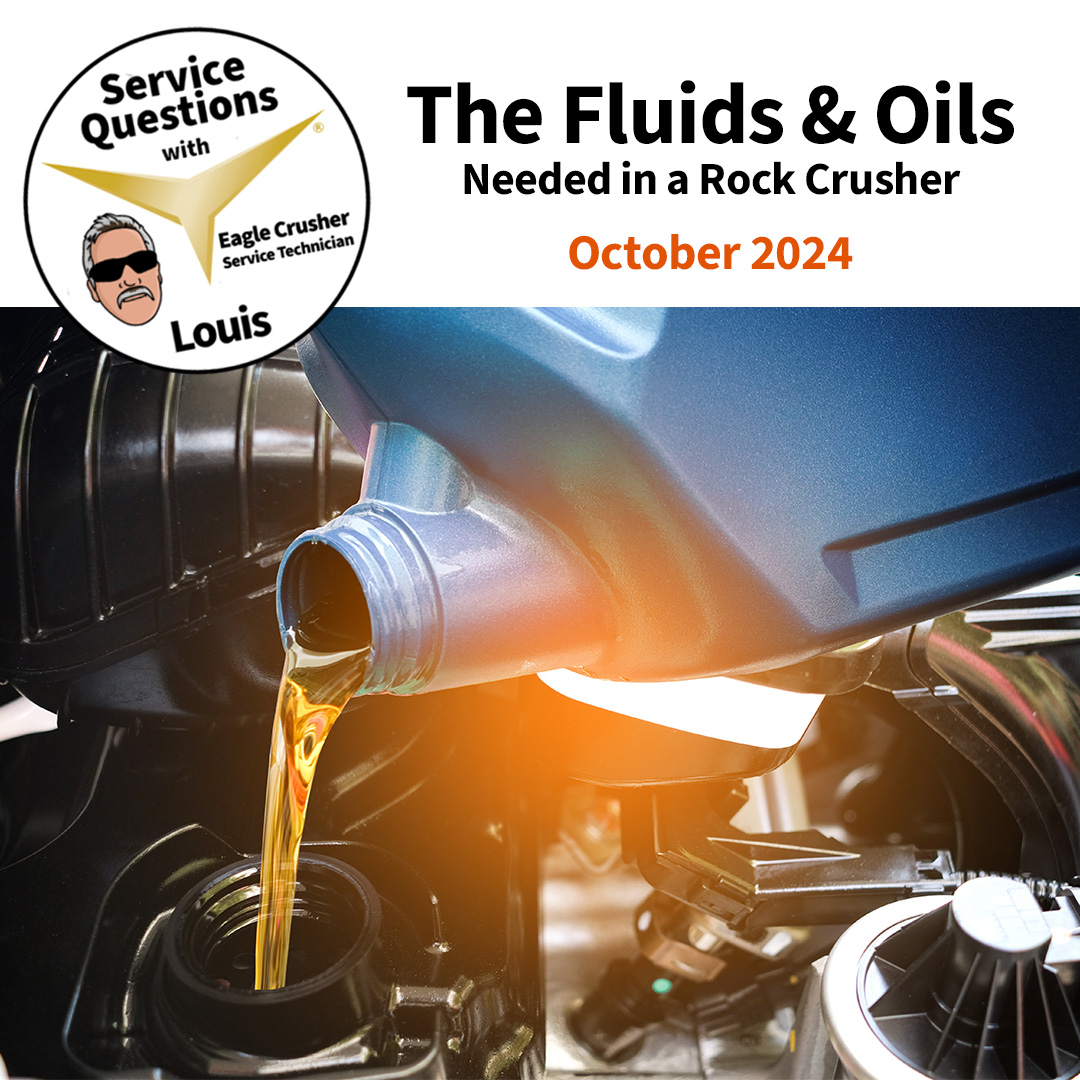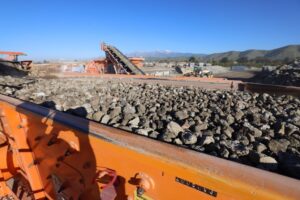Blog
Service Questions: The Fluids & Oils Needed in a Rock Crusher

Service Questions with Louis: The Fluids & Oils Needed in a Rock Crusher
Service technicians in the heavy equipment industry often receive a range of inquiries, many of which can be answered quickly. For example, questions about the types of fluids and oils required for equipment like crushers are extremely common. These machines rely on specific lubricants and hydraulic fluids to operate efficiently, and knowing the correct types and quantities is essential for both maintenance and performance. Quick, accurate answers to these routine questions help keep operations running smoothly and prevent potential equipment damage. The following is a quick list of recommendations from Eagle Crusher Service Technician, Louis, to assist you alongside your owner’s manual and local dealer.

Engine-Related Fluids
- Diesel Engine Oil
-
- Utilize the oil recommended by the engine manufacturer contained within the owner’s manual.
- Diesel Engine Coolant
-
- 50/50 mix Ethylene Glycol and demineralized water and a corrosion inhibitor.

Deister Screens and Feeder Drives
- Deister Feeders
-
- Mobil SHC 632 is preferred or Mobil DTE BB for 0 to 80 F
-
- Mobil SHC 632 is preferred or Mobil DTE AA for 40 to 100F
- Deister Screens
-
- Mobil 632 is preferred
Older plant utilizing Simplicity screens or feeder drives should consult their owner’s manual or contact Team Eagle service department for specific recommendations.

Other Crushing and Screening Plant Components
- Hydraulic Unit Engine
- Hydraulic Reservoir
- Speed Reducer Gear Box
-
- Mobil SHC 630 or ISO220 gear oil
- Motorized Head Pulleys
- Electromagnets 33 and 44
-
- Diekan 410
-
- Isovoltine 410
Gathering More Information
Knowing who to ask for help regarding your crusher’s fluids and oils is crucial for maintaining its longevity and efficiency. A qualified service technician or reliable authorized dealer can provide the correct information, ensuring the use of proper fluids and oils. Using the wrong type or amount can lead to premature wear, breakdowns, and costly repairs. Either consulting your owner’s manual or establishing a relationship with knowledgeable experts could ensure that your crusher operates at its best, reducing downtime and enhancing productivity in the long run.
Make sure to follow our “Service Questions” series by catching up on previous questions and come back for next month’s topic by Service Technician Dakota as he covers some common feeder issues and how to resolve them.


